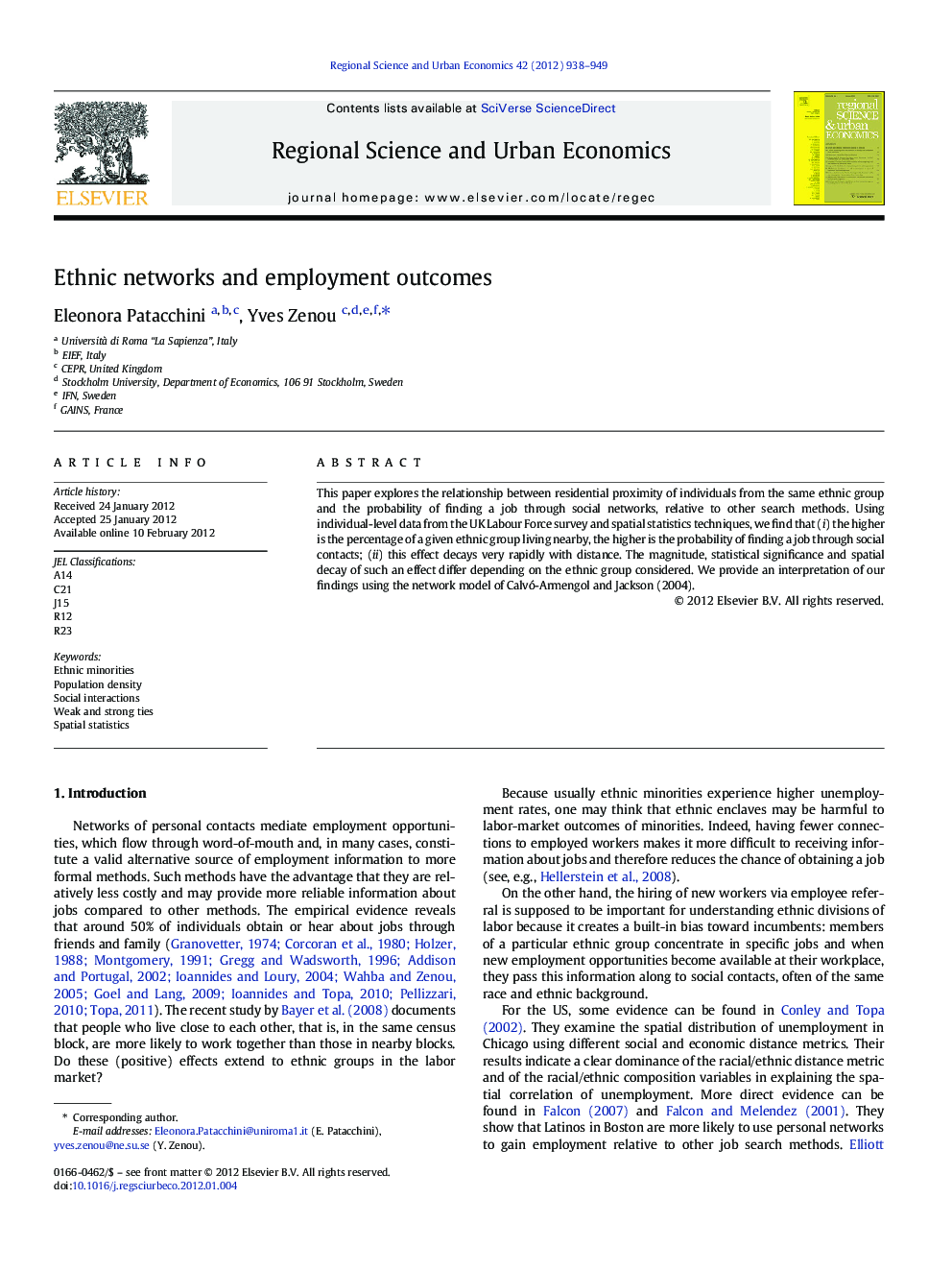| Article ID | Journal | Published Year | Pages | File Type |
|---|---|---|---|---|
| 983818 | Regional Science and Urban Economics | 2012 | 12 Pages |
This paper explores the relationship between residential proximity of individuals from the same ethnic group and the probability of finding a job through social networks, relative to other search methods. Using individual-level data from the UK Labour Force survey and spatial statistics techniques, we find that (i) the higher is the percentage of a given ethnic group living nearby, the higher is the probability of finding a job through social contacts; (ii) this effect decays very rapidly with distance. The magnitude, statistical significance and spatial decay of such an effect differ depending on the ethnic group considered. We provide an interpretation of our findings using the network model of Calvó-Armengol and Jackson (2004).
► Explores the relationship between proximity and the probability of finding a job. ► Finds that this relationship is positive. ► The effect differs depending on the ethnic group considered.
